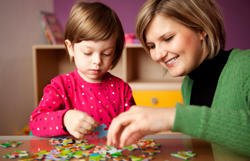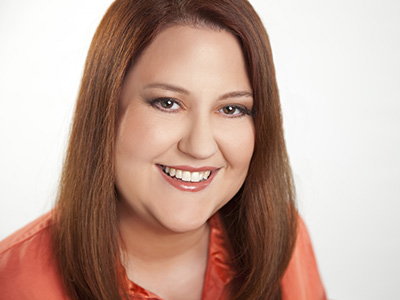 People often ask me how I raise my children without religion, as I’ve written in the past that I was not raised with a religion nor do I plan on raising my own children religiously. Basically I plan to raise them spiritually. So what’s the difference? To me, raising a child under a certain religion means passing on a set of fast and firm doctrine that was devised by other people and which is not to be questioned but simply followed. Raising a spiritual child means allowing them to discover their own connection to the Divine through their own experiences and allowing them to adopt their own beliefs based on their own perspectives.
People often ask me how I raise my children without religion, as I’ve written in the past that I was not raised with a religion nor do I plan on raising my own children religiously. Basically I plan to raise them spiritually. So what’s the difference? To me, raising a child under a certain religion means passing on a set of fast and firm doctrine that was devised by other people and which is not to be questioned but simply followed. Raising a spiritual child means allowing them to discover their own connection to the Divine through their own experiences and allowing them to adopt their own beliefs based on their own perspectives.
There are four concepts I want to teach my children that I think will help them navigate through life in a meaningful and empowered way. They are:
Treat others with kindness, compassion, and respect
The golden rule states that we should treat others the way we’d like to be treated. I think that’s a pretty fair and reasonable tenet. But sometimes people want to be treated differently than we’d treat ourselves. So in addition to the basic gist of the golden rule, I am teaching my children to treat others with kindness, compassion, and respect. It really costs us nothing to be kind and to show compassion towards others. And while we may not agree with or even understand another person’s point of view, we should still respect their right and their freedom to hold their own beliefs. We’re all in this together, and it behooves us to help others when and where we can.
Be responsible for your actions
I don’t believe in right or wrong; I believe in choices and consequences. Most people on the planet can’t agree about what’s right or wrong. Is murder wrong? What about if it’s to save your threatened children? Is lying wrong? What if it’s to spare someone’s feelings? Is abortion wrong? What if it’s to save the mother’s life? People argue and debate over right and wrong and it’s so subjective. What is wrong for one person may be right for another. What is right in one situation may be wrong in another. We all have different perspectives. Instead of right and wrong, it’s really about taking responsibility for your actions. You’re free to do as you will, but you must accept the consequences of your actions.
So I’m teaching my children about the concept of choices and consequences. “Emily, if you hurt Kyle he probably won’t want to play with you anymore. How will you feel if you no longer have a playmate at home?” When the children complain about an unfortunate situation in their lives, I ask them, “What choice did you make that led to this consequence? And how can you change that in the future so it leads to a more acceptable outcome?”
Fail to study, fail your test. Decide not to brush your hair, get painful knots and snarls. Pick a fight with a friend, lose the friendship. Eat only junk food, feel lethargic and sick. And so on. When my children ask me what they should do in a situation, I ask them what consequences they’d like to have and we go over how to best get the results they want by making the choices that will most likely lead to a favorable outcome. In this way I teach them how to make decisions by looking at the short and long term effect of their actions. And when they’ve done something that leads to a negative outcome, we discuss responsibility and making better choices in the future.
Learn how to make yourself happy
I think one of the greatest gifts you can give a child is to teach them how to make themselves happy so they don’t rely on someone else to do it for them. To that end, I help my children explore the activities and feelings that give them joy. I want my children to be proud of themselves rather than seeking approval from me. When my children excitedly share an accomplishment I say, “Wow, you must be very proud of yourself.” Or I say, “I’ll bet you feel great that you accomplished that.” If instead I were to say, “I’m so proud of you” then it makes them feel they must earn my approval. That will later translate into earning approval from others like their partner or boss or friends. Even though I am the parent, it’s not my place to judge their actions. If they have done something they are excited about, I want them to take credit for creating that in their lives.
Follow your heart
I may act as a guide or a repository of experience that my children may draw upon, but ultimately I want them to follow their own inner compass and do what’s right for them. Often parents want their kids to take a certain path because the parents feel they are making the best decision for their children, but I want my children to learn from their mistakes, follow their hearts, and guide themselves. I want them to feel they can come to me anytime and ask my opinion, but I don’t want to them to walk a path simply because I wish them to.
***
I am not a perfect parent by any means. Sometimes I get frustrated with my children’s behaviors. Sometimes I am not in the best place to be parenting. Sometimes I break my own rules because my energetic reserves are depleted. But my kids know their mama is generally kind, compassionate, gentle, and loving. They know I will not judge them or cluck in disapproval when they experience a negative consequence to their actions. Instead I help them understand what happened and how it can be prevented in the future. Then I leave it to them to figure it out. Sometimes being a good parent means letting your child experience failure, so they can grow and take care of themselves one day.
